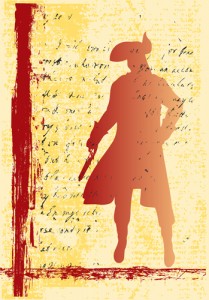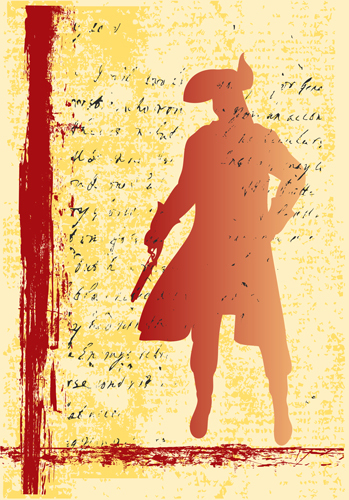
Why is Friedrich Schiller called the father of the modern true crime story in Germany? It’s because his debut crime story changed the genre. Schiller shifted the focus from sensationalism to motive. Here’s the tale in a nutshell.
Christian Wolf,* the poor, half-orphaned son of an innkeeper, fell in love. Because he was ugly, the only way he could woo his Johanne was by showering her with gifts. To afford them, he hunted in the bordering royal forest. But that was poaching. According to law, all forest game belonged to the sovereign.

Robert, the game warden, also loved Johanne. He wanted nothing more than to eliminate his rival. Robert frequented Wolf’s inn, just to investigate the sources of the innkeeper’s good fortune. The he started tracking Wolf through the woods. He eventually caught Wolf in the act, forcing Wolf to sell his inn to pay the fine for poaching.
Now Wolf had no income. He had no other choice than to return to poaching. But two more arrests led to four years in prison. There, other prisoners taught Wolf how to live a criminal life. After his release, no one would offer him a job, even as a swineherd. Full of anger, Wolf returned to poaching, and when he encountered Robert in the woods, shot and killed him in revenge. Wolf then became the leader of a feared band of robbers living deep in the woods. Theirs was the only society in which he found any kind of acceptance or honor. He became a famous, feared highwayman, known as the “innkeeper of the ‘Sun.’”
One year later, the band’s infighting got on Wolf’s nerves. He realized how immoral he’d become. Wolf decided to cross the border into Prussia, become a soldier, and lead a just life. But on the way to Prussia, a watchman thought he looked suspicious and arrested him. When the judge showed him compassion, Wolf revealed his identity. “I am the innkeeper of the ‘Sun,’” he announced.

Schiller ended the story with the confession. He left out the trial and execution (although they really did occur). Rather, Schiller asks what society did that forced Wolf to turn to crime. Is a law against hunting fair when people are starving? May a law enforcement officer stake out a rival for personal reasons? Have our prisons become schools of crime?
What was the last true crime book you read? Did it focus more on the trial and punishment or on societal conditions that contribute to crime?
*Schiller provided a fictitious name. The real criminal, on whom this story is based, was Johann Friedrich Schwan.
(c) 2014 Ann Marie Ackermann





This sounds like such an interesting story. Is there an English translation?
Yes, John, there are several English translations. At least one is available online: https://archive.org/stream/talesfromgermanc00oxenrich#page/34/mode/2up. It’s only 16 pages long.
16 pages? I might have to become an true-crime author if it’s that easy! 🙂
Perhaps a true-crime children’s book!
What was the reason for changing the name? Did he fear a lawsuit by the family of the deceased?
One interpretation is that Schiller’s juxtaposition of the two fictional names, Christian and Wolf, reflect the tension between good and evil in his character. Since Schiller wrote the story 26 years after Schwan’s execution, he probably didn’t have to worry about surviving members of Schwan’s family and their reactions.
[…] Criminal Motivated by Lost Honor: A True Story, by Friedrich Schiller. Schiller, author of William Tell and the Ode to Joy, is considered a father of the true crime genre. This is his debut story. It wasn’t the first true crime tale ever written, but Schiller’s fame helped launch the genre. […]